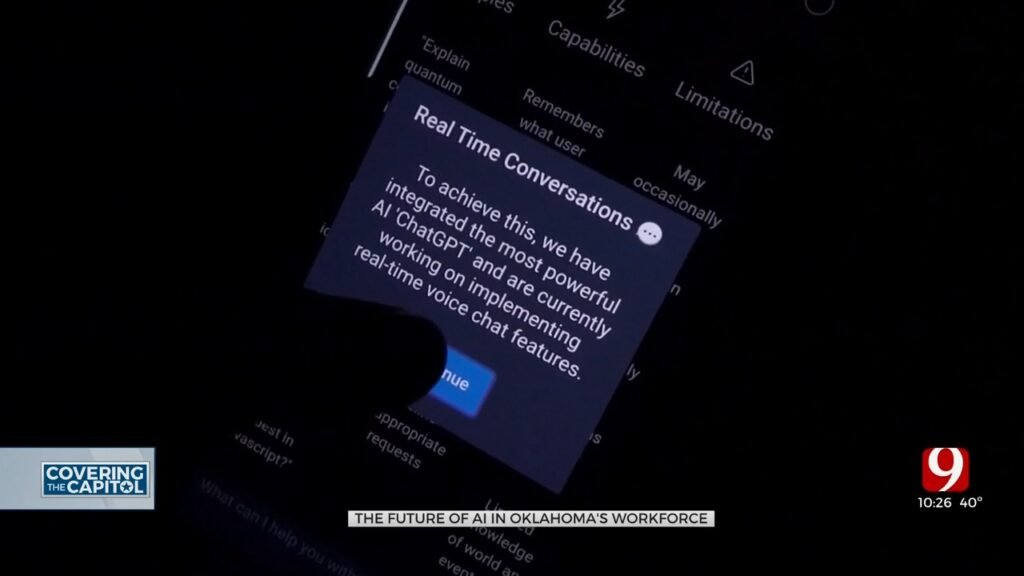Artificial intelligence is here to stay, and the state’s AI Task Force is exploring ways to make it work in Oklahoma. Gov. Kevin Stitt has said AI could someday replace some government positions.
One cybersecurity expert said that AI can help reduce the number of jobs required for certain tasks. However, he said AI requires knowledge and oversight to function properly. Jonathan Kimmitt helps organizations reduce risks associated with cyber security.
Kimmitt, Chief Information Security Officer at Alias Cybersecurity. “AI has become a topic of interest for many customers in recent years.
Kimmitt is learning how AI can impact his clients. “We should understand how they are being used and put safeguards in place,” Kimmitt said.
The community is working to understand artificial intelligence and its benefits and risks. “It’s a computer program that looks at trends,” Kimmitt said. “You look at the data and try to predict the correct answer on the other side.”
Mr. Stitt announced the final recommendations from the Task Force on Artificial Intelligence and Emerging Technologies. Stitt said in his statement that he wants to reduce Oklahoma state government jobs from 21 percent to 13 percent, in part because “artificial intelligence creates the potential for more efficient employment and government services.” Stated.
The Governor’s AI Task Force recommended the following:
- Create leadership positions within the state, including creating a chief artificial intelligence officer.
- Establish an AI oversight board that incorporates all three branches of government.
- Establishes an AI Technology Economic Development Task Force to leverage Oklahoma’s AI infrastructure.
- Establish an AI Digital Workforce Taskforce to encourage further embedding of the digital workforce into your existing workforce.
- Establish an AI Technology Talent Task Force to recruit more technically skilled talent to Oklahoma.
Kimmitt said AI comes with risks. “Sometimes you have to be careful what you get out of it,” Kimmitt said. “What is created may not be accurate.”
Kimmitt said personal information and AI could raise privacy issues. “That’s because it could become public information in the future,” Kimmitt said.
While AI creates efficiency, Kimmitt said it still requires human oversight. “People are becoming more efficient at doing a single task, and there may be fewer jobs in the future,” Kimmitt said. “They can use tools to be successful and reduce some of the risk.”

